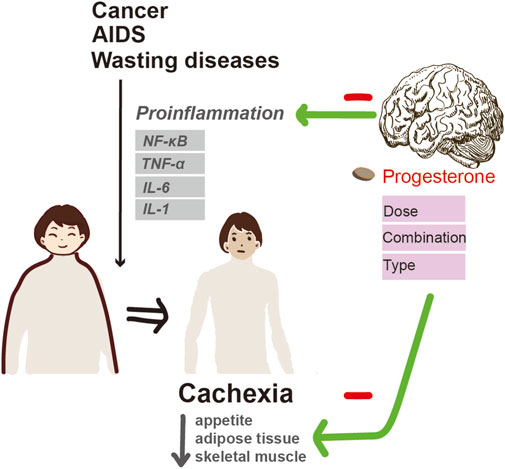
Revolutionary Research Uncovers Brain-Derived Estrogen’s Critical Role in Appetite Regulation
In an extraordinary advancement that could transform our grasp of hormonal mechanisms and obesity management, researchers from Japan have discovered that estrogen synthesized directly in the brain—referred to as neuroestrogen—plays a crucial role in controlling appetite. This finding, published in The FEBS Journal on February 18, 2025, challenges established beliefs regarding the hormone historically associated with reproductive health.
The investigation, led by Dr. Takanori Hayashi from Fujita Health University School of Medicine in conjunction with Dr. Eiji Nishio and teams from Chiba and Fukuoka Universities, reveals that brain-derived estrogen significantly affects hunger and energy homeostasis by interacting with essential neural receptors.
A Change in Perspective on Estrogen’s Role
Estrogen has long been acknowledged for its vital roles in sexual maturation, reproductive functions, and bone integrity. It was primarily believed to be produced by the ovaries. However, recent findings indicate that the brain can synthesize this hormone independently via an enzyme known as aromatase, which converts androgens to estrogen.
This locally generated estrogen, or “neuroestrogen,” is not merely a passive byproduct. Instead, the study shows that it actively regulates appetite and food consumption through previously uncharted pathways in the brain.
MC4R: A Vital Component in the Appetite Circuit
A key aspect of the study is the melanocortin-4 receptor (MC4R), a major player in appetite regulation situated in the hypothalamus, the brain region that oversees hunger and energy expenditure. Dr. Hayashi and his colleagues discovered that neuroestrogen directly boosts MC4R expression, which helps to lower appetite.
“When the function of aromatase was specifically reactivated in the brains of mice that could not otherwise produce estrogen, these animals consumed significantly less food than those lacking any aromatase,” Dr. Hayashi explains. “This was accompanied by a significant increase in MC4R levels in the hypothalamus.”
To elucidate neuroestrogen’s function, the researchers utilized advanced murine models:
– OVX mice (ovary-removed, mimicking menopause)
– ArKO mice (aromatase knockout, unable to produce estrogen)
– BrTG-ArKO mice (genetically modified to express aromatase solely in the brain)
The BrTG-ArKO cohort clearly indicated that appetite suppression and heightened MC4R expression took place even without ovarian estrogen, highlighting the brain’s intrinsic estrogen as the key player.
Increasing the Brain’s Sensitivity to Leptin
Another groundbreaking revelation is that neuroestrogen seems to enhance the brain’s sensitivity to leptin, a hormone secreted by adipose cells that signals fullness and helps regulate body weight.
“We found that the mice with restored neuroestrogen responded more efficiently to leptin treatment,” Dr. Hayashi noted. “This indicates that neuroestrogen collaborates with additional appetite-regulating mechanisms to ensure energy balance.”
Cellular-level investigations corroborated these results. Brain-derived estrogen resulted in increased MC4R production in hypothalamic neurons, further affirming its localized, specific action.
Implications: A New Frontier in Obesity Therapy
With rising global obesity rates concerningly high, and current treatments often proving insufficient in the long run, this finding paves the way for new targeted therapies. Rather than concentrating exclusively on peripheral systems like digestive hormones or metabolism, future strategies may aim to modulate the brain’s own neuroestrogen production.
Such approaches could particularly benefit women during menopause, a life stage frequently associated with weight gain and shifts in appetite due to hormonal changes.
“Neuroestrogen could revolutionize appetite control and the fight against obesity,” Dr. Hayashi states. “By comprehending its mechanisms, we might develop precise strategies that address hunger at its neurological origin.”
Looking Forward
These discoveries highlight the significance of the brain as not only a control hub for behavior and emotions but also as a hormone-producing organ with significant implications for physical health.
As scientists explore the interactions between neuroestrogen and other signaling molecules such as leptin and MC4R, novel therapeutics may emerge, tailored to each individual’s unique hormonal and neurological profile.
In summary, this groundbreaking research changes the way we perceive estrogen and its impact on body weight, providing hope for millions facing obesity and related metabolic challenges.
For further details on this study, read the complete article in The FEBS Journal.
Support Science That Matters
If this report inspired or informed you, please consider supporting independent science journalism. Your contributions enable us to continue providing insightful, evidence-based reporting on scientific findings that affect daily life. Each donation supports our mission to make science accessible and influential. Thank you for being part of this journey.
→ Donate now to support independent science reporting.